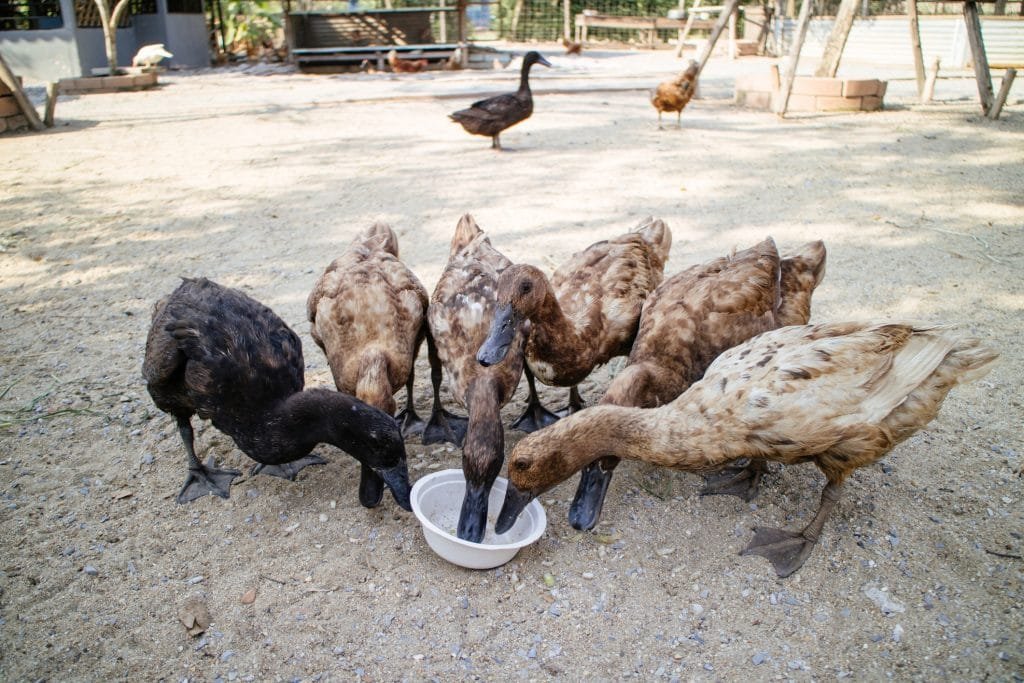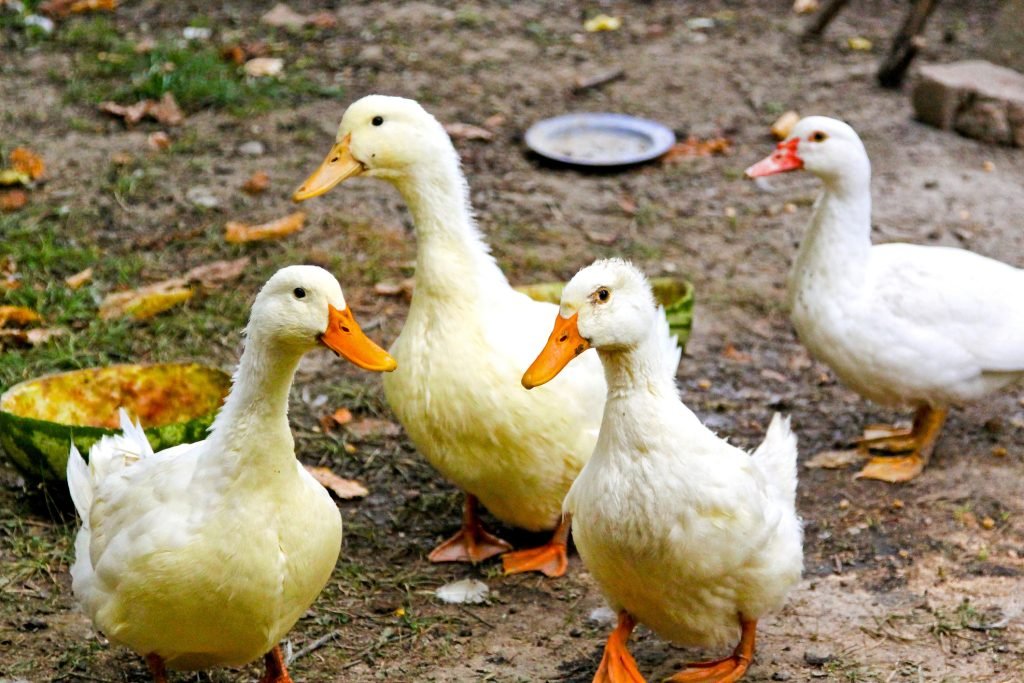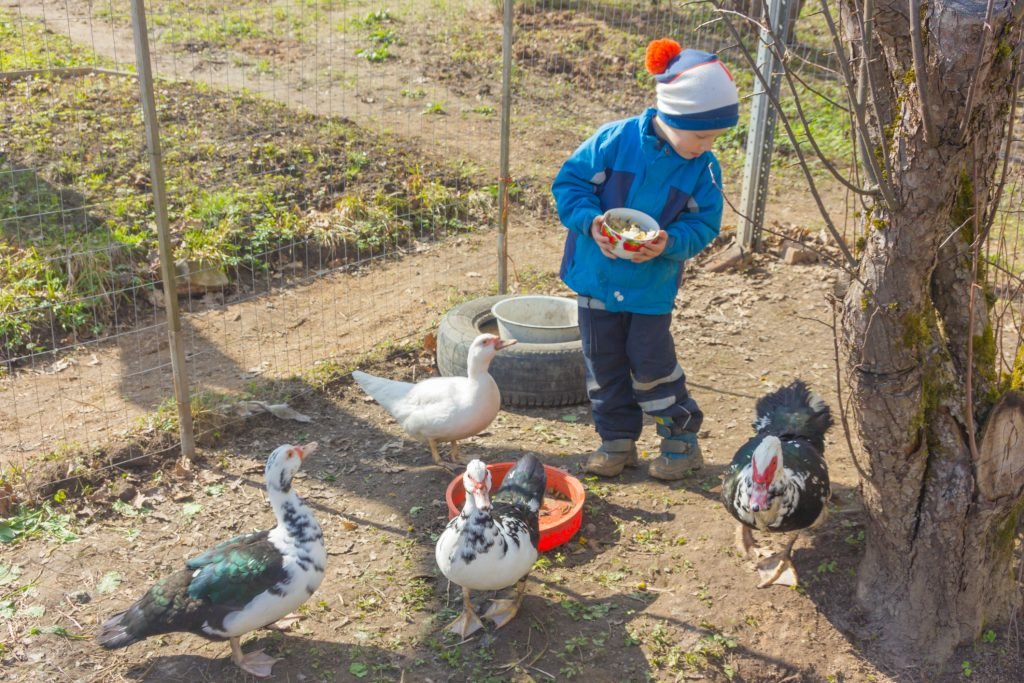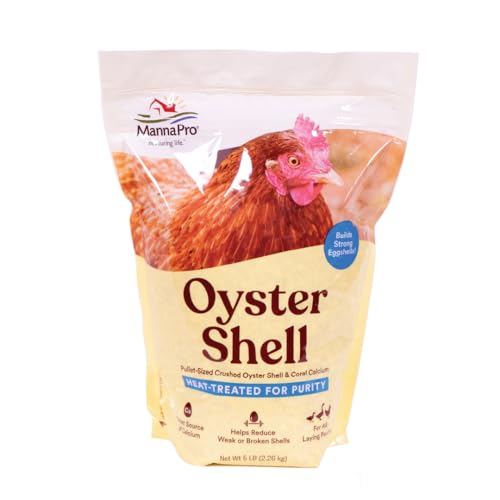This post contains affiliate links.
Keeping ducks, whether they are for eggs, meat, or as pets, is quite different from keeping chickens. They have slightly different dietary needs because the structure of their digestive system is different. Ducks need to eat the right amount and the right type of feed to stay healthy and productive.
Ducks need to be fed 3 to 4 times per day. They do not store food in their crops to digest later, like chickens. Instead, they constantly digest the food they eat. This means that ducks should be fed more often than chickens. Ducklings require a constant food supply until they reach 6 weeks old.
When I got my first flock of ducks, I had been keeping chickens for many years and assumed that caring for ducks would be very similar. I was surprised to find out just how different their nutritional needs are! There are no strict rules for feeding ducks, but there are some guidelines to follow, based on the birds’ breed, their activity levels, and the time of year.

How Often Do Free-Range Ducks Need To Be Fed?
Allowing your ducks to free-range is a great way to cut down on the cost of feed (they only need 1/6 to ¼ of the usual amount of feed). The ducks also enjoy a higher quality of life because they get to eat a variety of different foods – bugs, slugs and snails, grasses, weeds, and seeds.
Free-range ducks only need to be fed once or twice a day. I give my ducks a small serving of layer pellets in the morning before I let them out of their pen for the day. I also put out some pellets for them in the evening.
How Often To Feed Ducks In A Pen?
If you do not have the space to let your ducks free-range and they live in a pen, you will have to be much more on the ball when it comes to feeding.
Ducks in a pen should be fed 3 to 4 times a day. Their digestive systems are constantly at work processing what they eat. This is why they need food more often than other poultry, like chicken or quail.
If you are away from home during the day, you can get away with feeding your ducks twice a day – once in the morning and again in the evening. You will need to serve them larger quantities of feed.
How To Feed Ducks
Ducks are waterbirds and have evolved to need water when they eat. You will often see ducks picking up a pellet, dipping it in water, and then eating it. It helps their digestive system if they moisten their food. Many people that keep ducks, including myself, give their ducks feed in a container of water or fed a wet mash.
But apart from providing them with water for their feed, how does one go about feeding ducks? How you feed your ducks is largely dependent on their age and their purpose.

How to Feed Ducklings
When you are raising ducklings, you will need to provide them with feed around the clock. Check on the ducklings throughout the day to make sure that they do not run out of food or water.
Ducklings grow extremely fast, and to support this growth, they need the right amount of feed with the correct nutritional profile. Feeding ducklings a balanced diet with all the vitamins and minerals they need is critical.
Niacin, or vitamin B3, is a very important nutrient for ducklings (more so than for chicks). It is also important that ducklings get feed with a high enough protein content to support their rapid growth.
Feed ducklings a waterfowl starter or crumble with at least 20% protein for the first 2 to 3 weeks. If you can’t find feed specifically for ducks, it is okay to give them chick starter feed. However, you need to add a tablespoon of brewer’s yeast to ensure they get enough niacin.
When ducks are between 3 and 6 weeks old, you should feed them a waterfowl starter with about 15% protein. At this stage, the duckling’s growth slows down a bit, so they do not need quite as much protein as in their first few weeks of life.
How to Feed Laying Ducks
When ducks are old enough to lay eggs, you should switch them over to a feed that contains slightly higher levels of protein – around 16-17%.
To support the development of healthy eggs, they need enough protein. Waterfowl laying feed has the right balance of macro and micronutrients.
For egg-laying ducks, it is critical that they get enough calcium in their diet to prevent them from laying soft eggs. The eggshells are made of calcium carbonate, so they need to eat enough calcium.
Crushed oyster shells are a great calcium supplement. Give them a small handful along with their daily feed. Once you start feeding them oyster shells, you will see a noticeable difference in the strength and quality of the eggshells in just a few days.
When it comes to keeping ducks for egg-laying, your goal is maximum egg production and longevity. You, therefore, need to feed them enough to support egg laying, but not so much that they become overweight.
- FOR LAYING POULTRY: Our crushed oyster shells are crafted to provide essential calcium for...
- OYSTER SHELL & CORAL CALCIUM: Our chicken oyster shells are made from a blend of crushed...
- STRONGER EGGSHELLS: Our crushed oyster shells are an excellent source of calcium for...
How to Feed Meat Ducks
Ducks are excellent meat birds because they grow very fast, especially breeds like Pekin. Ducks usually reach slaughter weight in about 8 to 9 weeks!
A tried and tested method for growing meat ducks quickly is to feed them 3 times a day in 15-minute sessions. During those 15 minutes, you want the ducks to eat as much as possible. You may need to refill their feeder during the feeding sessions.
The advantage of this feeding regime (as opposed to leaving feed out all day) is that it guarantees the ducks have a voracious appetite at each feeding session.
After the feeding session, scoop out all the remaining feed and dispose of it. Because the feed gets moist, you never want to leave it out as it quickly gets contaminated with mold and bacteria.
How to Feed Pet Ducks
Raising ducks as pets is quite different from raising layers or meat birds. You are not trying to grow them as fast as possible or feed them to optimize their egg production. Your goal is to keep your feathered friend alive for as long as possible and afford them the best possible quality of life.
Your pet duck needs to eat a balanced diet with all the proteins, minerals, and vitamins they need to stay fit and healthy. Ducks enjoy foraging for a wide range of different foods – greens, seeds, bugs, and slugs.
People who keep ducks as pets feed them a serving of pellets formulated for ducks at least twice daily (morning and evening) to ensure that they get all the micronutrients and protein they need to stay healthy. If possible, pet ducks should be allowed to free-range throughout the day and forage for natural foods they enjoy.
Free Feeding Vs Limited Feeding for Ducks
There isn’t one right way to feed ducks. Some people free feed their flock while others feed their ducks limited meals a couple of times daily. There are advantaged and drawbacks to each method.
Free feeding is great if your ducks have the ability to free-range, even just for a few hours per day. If you free feed ducks in a pen, they can get overweight due to lack of exercise. Free feeding is great if you do not have time to feed your ducks during the day.
Limited feeding (feeding 3 or 4 times a day in 10-to-15-minute sessions) results in less feed going to waste. You have to put out fresh feed every day and get rid of the old feed if you are free feeding, so restricted feeding can be more economical.

How Much Feed Do Ducks Need?
One duck typically needs about 6 or 7 ounces (170-200 grams) of feed daily if you are feeding it pellets and crushed grains exclusively. This amounts to around ¾ cup of feed per bird per day.
If ducks are able to free-range during the day, you can drastically reduce the amount of feed you give them. Free-ranging ducks only need ¼ to 1/6 of the feed you would give ducks in a pen. So they roughly need 1 to 2 ounces (33-50 grams) of feed per day.
Keep Ducks’ Feed Fresh
If you free feed your ducks, you need to be diligent about throwing out old feed on a daily basis. Feed that contains dirt, mold, or weed seeds is not good for ducks.
Because ducks need water with their food, it is highly susceptible to developing mold. Mold is especially harmful to ducks. Certain mold strains contain toxins that damage ducks’ liver, kidneys, and gastrointestinal tract.
Another reason to keep your ducks’ feed fresh is that the longer it is left out in the heat and sun, the more nutrients and vitamins are lost.
Unless you have a very large flock, avoid buying huge bags of duck feed. Commercial duck feed expires about 3 weeks after you open it. It is more efficient to buy smaller bags of feed more frequently if you have a small backyard flock.
How Long Can Ducks Survive Without Feed?
Ducklings must have access to food and water at all times. They cannot survive without food and water for more than a couple of hours. For the first 6 weeks of their life, they need food and water 24/7.
Adult ducks can survive for 6 to 9 hours with no water or food if they are stuck in a coop. Longer than this, and they will suffer. They will die from dehydration if they have no water for 3 days (or less if the weather is hot and dry) and will starve in about 2 weeks without food.
If ducks are able to free-range and have access to a stream or dam, they can survive for a long time without you giving them food and water.
What Do Ducks Eat?
In the wild, ducks enjoy a varied diet. They are omnivores, eating both vegetation and insects. Where possible, you should feed your flock a range of different foods.
Commercial Duck Feed
There are a variety of different feeds on the market that are formulated for ducks and other waterfowl. The feeds contain all the essential nutrients, vitamins, and minerals that ducks need to stay fit and healthy.
Great brands of commercial duck feed are Purina, Manna Pro, Mazuri, Gunter, Scratch and Peck, and Prairie’s Choice.
It is important to feed the right type of feed for their age. Ducklings need a feed that is high in protein (20 to 22%), fully-grown laying ducks need a feed that contains around 16% protein, and male ducks and non-layers only need 14% protein in their feed.
- NO ANTIBIOTICS: Manna Pro Duck Layer Pellet is formulated with non-medicated, non...
- BALANCED NUTRITION: High quality proteins to support increased egg production and support...
- DIGESTIVE HEALTH: Formulated with probiotics to support healthy digestion and egg...
Natural Foods For Ducks
Free-ranging ducks love to eat a surprising variety of foods:
- Slugs and snails
- Tadpoles
- Worms
- Fish eggs
- Small fish fry
- Small lizards
- Small freshwater crustaceans, like crawdads
- Wild berries
- Algae
- Water plants
- Grass
Healthy Treats For Ducks
If your flock of ducks do not have access to a pond or dam, they can still enjoy variety in their diet. Your ducks will love it if you feed them the following treats:
- Cooked rice
- Cooked pasta
- Cooked or uncooked oatmeal
- Cracked or cooked corn
- Chopped up veggies, like broccoli, kale, lettuce, zucchini, or pumpkin
- Chopped or sliced fruits, like grapes, berries, banana, watermelon, or cantaloupe
- Frozen peas
Foods To Avoid Feeding To Ducks
There are certain foods that should not be fed to ducks:
- Bread
- Avocado
- Chocolate
- Onions
- Dry beans
- Raw potato peels
- Citrus
- Large quantities of spinach
- Cat food
- Fatty, salty, or sugary foods, like French fries or processed meats
Final Thoughts
Ducks need feeding far more frequently than chickens because their digestive systems have evolved differently. Ducklings up to 6 weeks old need to have access to fresh food and water at all times. You can choose whether to free-feed your ducks or feed them 3 or 4 times a day for 10-to-15-minute sessions.
At the very least, you need to check on your ducks’ feed in the morning and the evening. Ducks are a commitment to keep and care for, as they need daily feeding and watering.


